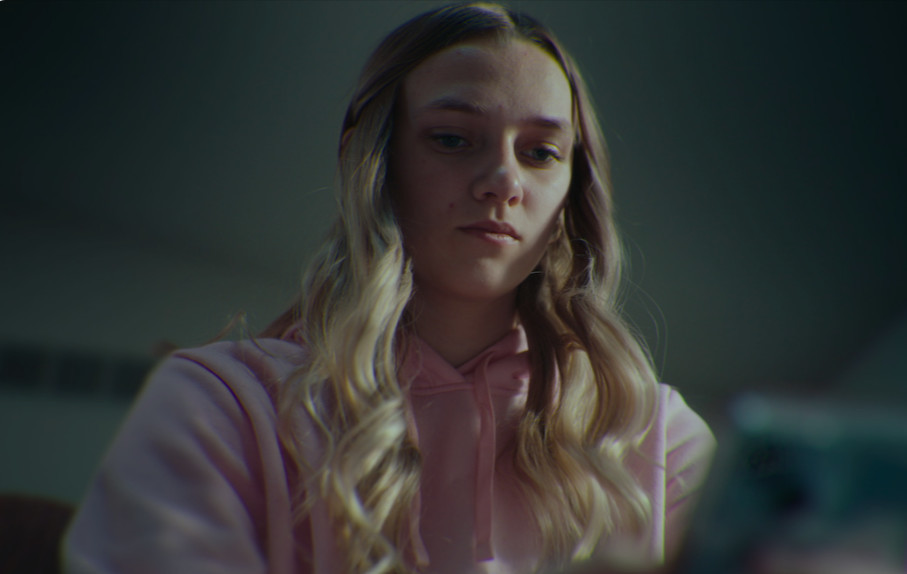
**Spoiler Alert! Significant spoilers for the documentary Unknown Number: The Highschool Catfish are ahead**
Netflix’s Unknown Number: The High School Catfish isn’t just a shocking story of deception—it’s also a raw glimpse into the psychological dynamics between a mother and her daughter, and how unresolved trauma can quietly shape relationships for years. At its heart, this documentary is less about catfishing and more about control, codependency, and the unspoken legacy of childhood wounds.
As a therapist, I see this film as a case study in what happens when trauma is left untreated, and how healing through approaches like Schema Therapy and Brainspotting can help break the cycle.
The Mother-Daughter Dynamic
The central figure of the documentary is a mother who creates false online identities, entangling her daughter in elaborate digital deceptions. What shocks viewers isn’t just the scale of her actions, but the intimacy of the harm: the betrayal wasn’t from a stranger, but from the one person meant to offer safety.
Psychologically, her actions speak to an inability to tolerate boundaries. In healthy parent-child relationships, a parent nurtures, supports, and gradually steps back as the child grows. In this case, the mother blurred every line between herself and her daughter, between reality and fantasy, between protection and control. The “catfish” accounts became a way to maintain closeness, even if it meant sabotaging her daughter’s independence.
This dynamic reflects a likely distorted attachment pattern. The mother may have been driven by unconscious fears of abandonment, rooted in her own self-reported unhealed trauma. When a parent has unresolved wounds, it can leak into the relationship with their child, making it less about love and more about possession.
Codependency in Parental Relationships
When most people hear the word codependency, they think of romantic partnerships. But codependency can exist in any relationship, especially within families.
At its core, codependency is about blurred boundaries, enmeshment, and control disguised as care. In the documentary, we see how the mother’s need to be central in her daughter’s life came at the expense of the daughter’s autonomy. The daughter’s sense of self, her choices, her romantic relationship, and even her friendships were constantly infiltrated.
In parental codependency, a child can grow up feeling both smothered and unseen. They may internalize guilt for wanting independence, believing their role is to meet the parent’s emotional needs. This creates a painful split: the longing for freedom clashes with the fear of losing love.
Over time, this dynamic can set the stage for anxiety, depression, and relationship struggles in adulthood. The child learns: “Love means I must sacrifice myself.”
The Roots of Complex Trauma
The behaviors highlighted in the documentary don’t arise in a vacuum. When a parent exhibits this level of control and deception, it can reflect their own history of complex trauma.
Complex trauma (sometimes called C-PTSD), develops from repeated relational wounding over time. Unlike a single-event trauma, complex trauma is chronic, often arising from neglect, emotional abuse, or unstable caregiving in childhood. Survivors of complex trauma may grow up without a stable sense of safety, self-worth, or trust in others.
For the mother, creating online personas may have been a misguided attempt to soothe her own unmet needs for connection and control. But instead of healing, the trauma repeated itself, and this time harming her daughter. This is how intergenerational trauma unfolds: when wounds aren’t addressed, they are unconsciously passed down.
Breaking the Cycle: Healing with Schema Therapy
Schema Therapy is a powerful modality for understanding and repairing these deep-rooted patterns. At its heart, Schema Therapy focuses on schemas, which are core emotional themes and beliefs we develop in childhood that continue to shape how we think, feel, and relate as adults.
In cases like the documentary, we might see schemas such as:
-
Abandonment Schema: “If I let go, I’ll be left alone.”
-
Enmeshment/Undeveloped Self Schema: “I can’t be separate; my identity is tied to yours.”
-
Defectiveness Schema: “Something is wrong with me, so I must control how others see me.”
For the daughter, different schemas may have emerged:
-
Mistrust & Abuse Schema: “Those closest to me will hurt me.”
-
Self-Sacrifice (aka Subjugation) Schema: “My needs don’t matter if they upset someone I love.”
Schema Therapy helps clients identify these patterns, trace them back to their origins, and learn healthier ways of relating. Importantly, it integrates emotional, cognitive, and experiential work, so healing happens not just in the mind, but in the felt sense of safety and connection.
How Brainspotting Can Support Trauma Recovery
While Schema Therapy offers a cognitive-emotional map, Brainspotting works directly with the body and nervous system to release the trauma that words can’t always reach.
Brainspotting is based on the idea that where we look affects how we feel. By locating “brainspots” in the visual field connected to traumatic material, clients can process stuck emotions and bodily tension linked to past experiences. This allows for deep integration; healing not only the story, but the nervous system’s imprint of trauma.
For someone recovering from betrayal trauma like the daughter in the documentary, Brainspotting can help release the embodied fear and mistrust left behind. For the mother (if she were willing to engage), it could help access the unresolved pain that fueled her destructive behaviors.
Healing trauma is about helping the body learn that it’s safe to let go.
Moving Toward Healing and Independence
What makes Unknown Number: The High School Catfish so haunting is that it illustrates both sides of trauma: the unhealed wounds of the parent and the fresh wounds inflicted on the child. Yet it also opens a window into what recovery could look like.
Breaking free from codependent patterns requires:
-
Boundaries – Learning that love does not mean control.
-
Self-Differentiation – Developing a strong sense of self, separate from others’ needs.
-
Trauma Processing – Working through the emotions and body memories of betrayal and neglect.
-
Compassion – Holding the complexity of both our parents’ pain and our own.
Therapy can create a safe space to do this work. With modalities like Schema Therapy and Brainspotting, clients can confront the roots of their pain without being overwhelmed. Over time, this builds resilience, freedom, and the ability to form healthier, more secure connections.
Unknown Number: The High School Catfish is unsettling not because it’s about the internet, but because it’s about intimacy gone awry. It reminds us that trauma is often transmitted through relationships, but so is healing.
When we tend to our wounds through insight, therapy, and embodied healing, we stop the cycle. We learn that closeness doesn’t have to mean control, and love doesn’t have to cost us ourselves.
____________________________________
Meet Rebecca Steele: Registered Social Worker, Psychotherapist (MA, MSW, RSW, CCC)
Rebecca is a Waterloo-based trauma therapist offering virtual counselling across Ontario. With over a decade of experience, she helps adults navigate trauma, anxiety, OCD (including “Pure O” presentations), and self-esteem. Her insight-driven depth therapy approach supports self-understanding, emotional healing, and lasting change. Book an appointment or learn more about her online therapy services.
Located outside Ontario? You can explore Rebecca’s coaching and consulting offerings here.





